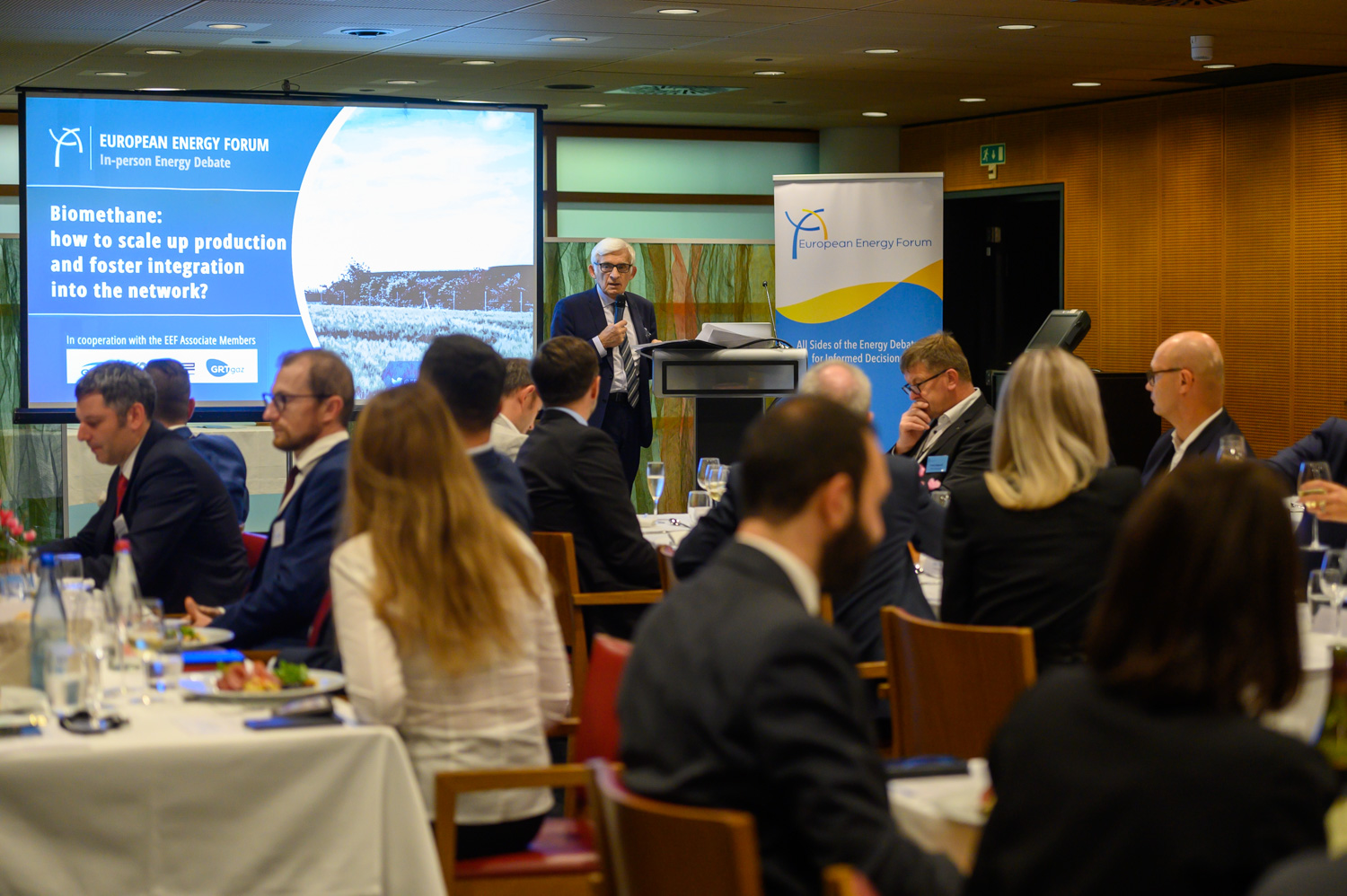Biomethane: how to scale up production and foster integration into the network?
Chaired by Jerzy Buzek MEP, President of the EEF
Speakers:
Martin Jahan de Lestang, Director “Renewable Methane”, Engie
Marcin Kapkowski, Deputy President, GAZ-SYSTEM
Thierry Trouvé, CEO, GRTgaz
This energy debate offered the chance to discuss biomethane production and integration into the EU gas market. Through clear data and figures, the speakers showed the EU has the potential to reach the REPowerEU target of 35 bcm of sustainable biomethane production and use by 2030, helping cut the EU energy dependence on external gas suppliers.
Martin Jahan de Lestang, Director “Renewable Methane”, Engie explained biomethane has a massive potential of decarbonizing the EU at an affordable cost. With hydrogen and electrification, it is a silver bullet to reach the EU climate objectives. The REPowerEU 35bcm target should be enshrined in EU legislation and the National Energy and Climate Plans to favour a real commitment from the EU producing countries. Effective long-term policies are needed to develop sequential crops and wood waste collection that underpin the production of both first and second generation biomethane. Since biomethane production also helps valorise waste and agriculture, EU policies in these areas should be developed in synergy. Investment needs are estimated at around 80 bln EUR by 2030 and could be met by mobilizing all financing programmes available. Mr. Jahan de Lestang concluded that what is crucial is to ensure biomethane does not split the EU internal gas market but instead strengthen it.
Marcin Kapkowski, Deputy President, GAZ-SYSTEM focused on Poland. Today, the country’s total natural gas consumption accounts for 20 bcm/year. In the future, biomethane could account to a total of 8 bcm/year, allowing to directly substitute a considerable part of natural gas use. Biomethane production potential is concentrated in those areas where GAZ-SYSTEM’s gas network is and where farming and agricultural waste is well organized, which is encouraging in view of biomethane injection into the grid and the emergence of an organized supply of substrate. However, all reasoning on biomethane in Poland is still theoretical as to date none of the country’s 636 biogas plants produces biomethane and none is connected to the transmission nor the distribution gas grid. But as the potential is there, developing a biomethane market in Poland is feasible, Mr Kapkowski reassured. National and EU support schemes for investments, clear market rules and cooperation between grid operators and the regulator in developing plans for grid expansion all play a key role in the process.
Back to France, Thierry Trouvé, CEO, GRTgaz explained that today nearly 500 plants inject biomethane into the gas grid, with a total capacity installed connected to the grid of 8.15 TWh/year, meeting 2% of yearly national gas consumption. 20 TWh of additional capacity is planned by 2025 and 60TWh by 2030. He shared insights on successful national policies that could be replicated at EU level, namely different national support schemes and the right to injection. The latter eases biomethane connection to the gas network by breaking down costs between infrastructure operators and biomethane producers, and by mapping production potential to prepare the network to accommodate it. Having reverse flow facilities in place is also key to avoiding grid saturation. He finally stressed the importance of ensuring an EU interoperable market with cross border trading of biomethane by establishing an EU wide biomethane guarantees of origin system that integrates sustainability information.
Several questions were raised by the MEPs. This enabled the speakers to further discuss preferable support scheme options and biomethane production. They clarified the REPowerEU target would be achieved sustainably, with biomethane production based on waste and residues and not in competition with food production. No competition with the agricultural sector would emerge for the use of organic fertilizers either. The speakers and MEPs agreed that biomethane use should be prioritized in those sectors for which electrification is not a viable option.



